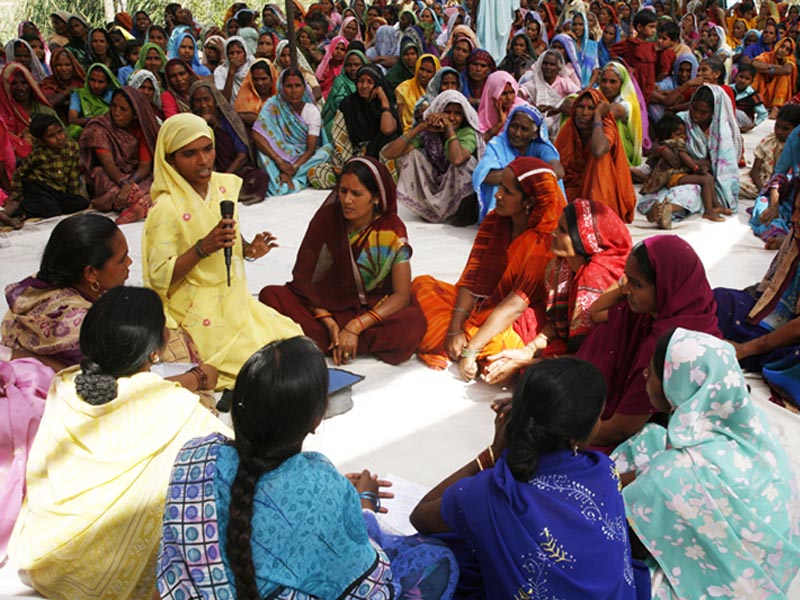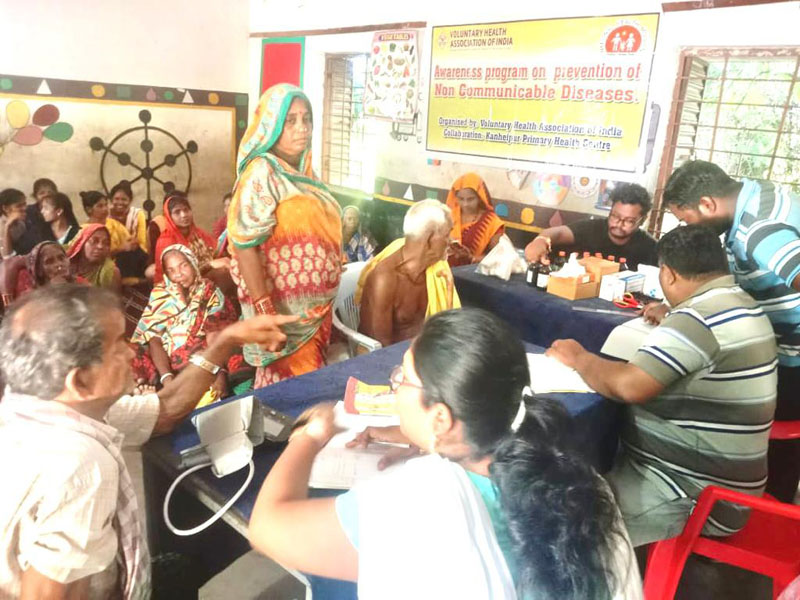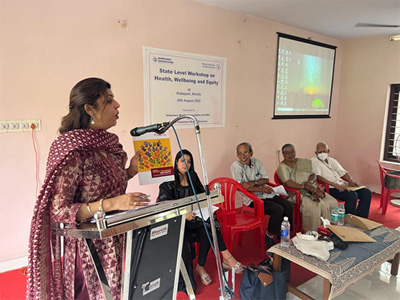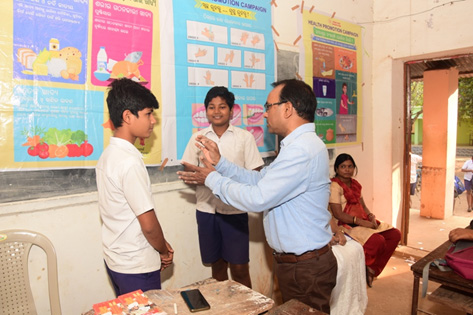Overview
Today, the case for sustainable and equitable investment for health and wellbeing is stronger than ever in the face of multiple challenges. South East Asia region, including India suffer from high burden of communicable diseases, growing prevalence of non-communicable diseases and emerging new diseases coupled with widening social, gender and health inequity gaps within and between countries. A country’s economic, social and political stability depends on the investment that it makes in healthcare. Health should not be treated as an expenditure but an essential investment for sustainable development. Clearly, progress in health and developmental outcomes cannot be achieved without addressing social determinants of health, health inequalities as well as ensuring active public participation.
Our Mission
Three Pillars to Achieve the Vision of Healthier Equitable And Sustainable Communities
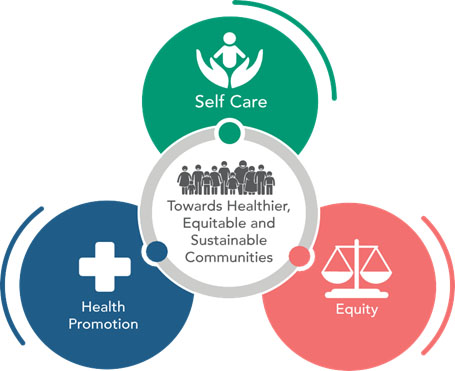
Our integrated model of Health, Wellbeing and Equity puts a focus on Health-Wellbeing in all policies and programmes. It is designed in such a way that it helps to prioritise equity, facilitate healthy behaviour, create social value, promote social rights and environmental sustainability
Our Action Agenda for the year 2015-2025
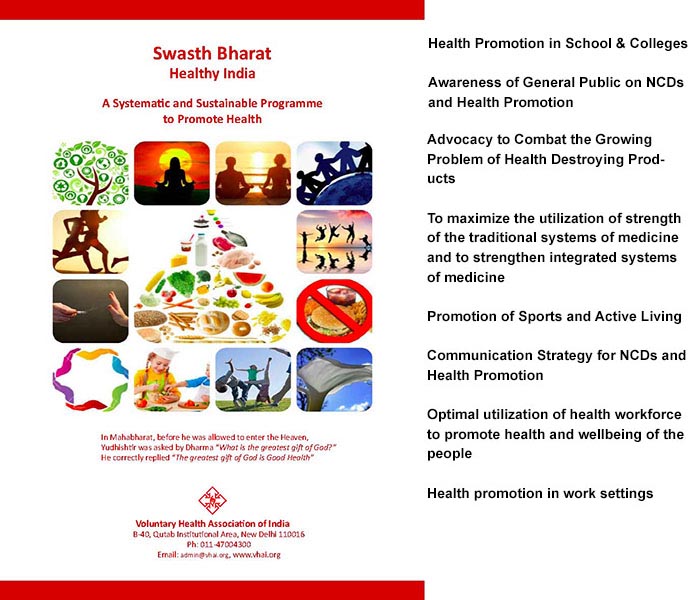
Current Work
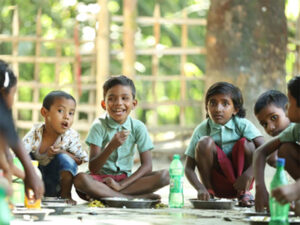 | School Health Promotion Programme
|
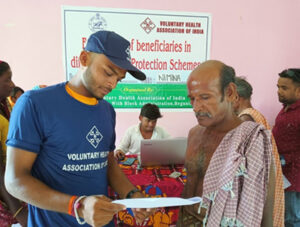 | School Health Promotion Programme Equity for the economically and socially deprived populations
|
School Health Promotion Programme
Establishing healthy behaviour during childhood is easier and more effective than trying to change unhealthy behaviour during adulthood. Children spend about 6 hours in the classroom every day for up to 13 years which are also the most formative years of their lives. School in partnership with parents and communities can be powerful agents to promote health and prevent disease.
The basic objective of the School Health Promotion Programme is to create awareness and inculcate healthy habits among school going children. And to ensure that children take these health messages and practices to their home, share it with their peer groups, neighbourhood and wider community. They become an agent of change in the society.
Key Activities:
- Baseline assessment of the schools
- Formation and training of new school health management committee (SHMC) on various issues such as personal hygiene, healthy eating, physical activity, harmful effects of health destroying products
- Strengthening of already formed School Health Management Committee
- Distribution of IEC materials such as leaflets and posters in the local language
- Supply of essential materials such as first aid kits, dustbins, hand soaps, cleaners and dusters
- Organizing competitions on health topics like Green Diwali- Rangoli, poster competition on personal hygiene, road safety and healthy eating; Healthy cooking etc.
- Nukkad Natak (street plays) on various issues such as unhealthy food and drug addiction
- Regular health check-ups in collaboration with Rashtriya Bal Swasthya Karyakram (RBSK) doctors in few areas.
Major Achievements
- Over 2500 students and 4000 parents sensitized on government scholarship schemes and programs for students.
- 482 PRI members in 25 Gram Panchayats oriented on modalities of government social security schemes and programs and provided technical support to measure and monitor execution of these schemes at Gram Panchayat level.
- Over 8000 women SHG members sensitized on existing social security schemes and programs.
- More than 5000 youth group members sensitized.
- Facilitated linkage for 412 youths with government scholarship, skill building and vocational schemes.
- 416 eligible families enrolled in food security & PDS scheme with ration card.
- E-Shram Card & Health Insurance Card prepared for 572 eligible beneficiaries.
- ADHAR card prepared/corrected for 187 beneficiaries
- 574 eligible beneficiaries enrolled in pension schemes like widow pension, old age pension, disability pension
- 182 beneficiaries enrolled in PM Awas and Biju Pukka House scheme
- 316 beneficiaries enrolled in agriculture-based schemes and programs
Screening camps for NCDs and other common ailments in remote pockets of Odisha
Timely diagnosis of NCDs allows prompt intervention, prevents complications, reduces substantial financial burden and promotes physical and mental well-being. With an intent to promote equitable health and wellbeing for all, VHAI in collaboration with the local Health Administration is organizing screening, treatment and sensitization camps for NCDs, Anaemia and other common ailments in remote pockets in Odisha.
Read More
Workshops on Health and Wellbeing
Pan India participatory workshop with an agenda to evolve clear strategies for future action by VHAI and State VHAs on Health Promotion. The workshop was based on three pillars- Health Promotion, Self-Care for Health and Social Determinants of Health including entitlements. Workshops for North, South, East and West has been successfully conducted by VHAI.
Orientation session on Eat Right Practice
VHAI is organising orientation session on Eat Right for community group members like VHSNC members, Women SHG members, Adolescent Group members in Ganjam district, Odisha. The session included balance diet, healthy eating practice, hygiene & sanitation, how to detect food adulteration at home by simple tests. So far 260 VHSNC members, 344 women SHG members and 456 adolescent group members are oriented.

